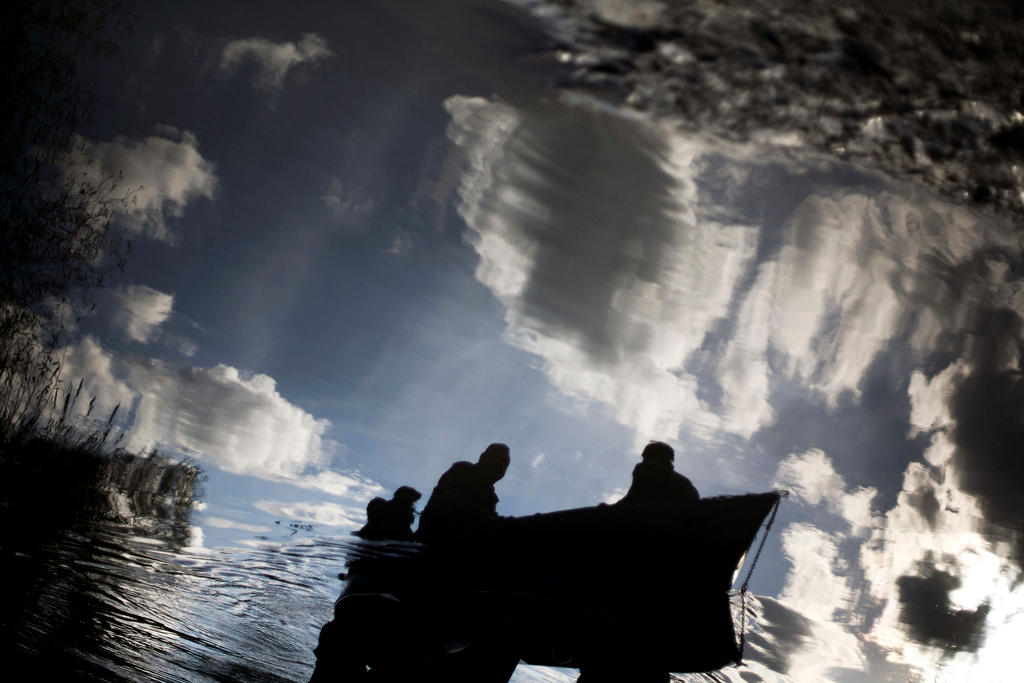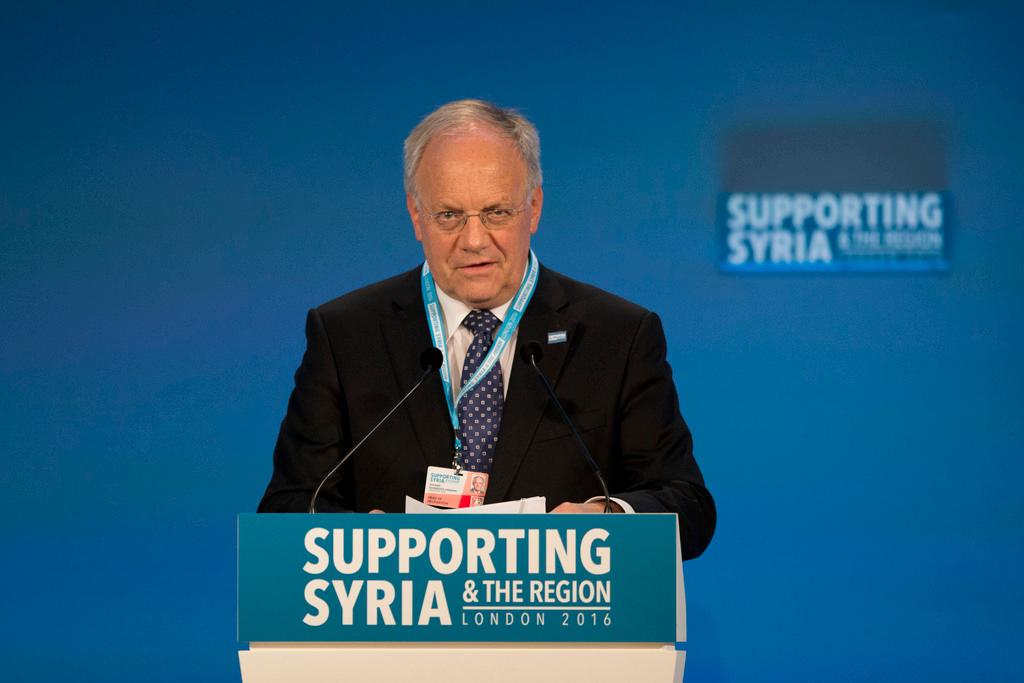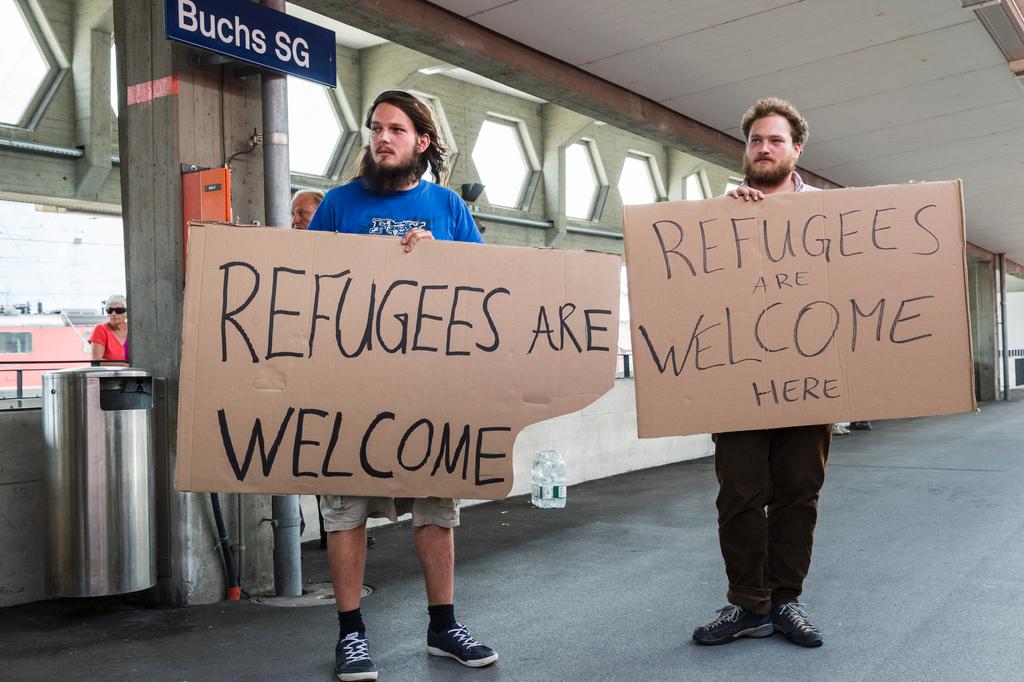Swiss focus on basic water and local groups

The Swiss government, host to talks aimed at ending the ruinous five-year Syrian conflict that has seen half the country’s population displaced, has been quietly encouraging peace on lesser known fronts through post-war preparation focused on a basic need – water.
With the peace talks in Geneva set to resume in April, diplomats are once again concentrating on trying to find a political solution to the five-year war that has killed at least 250,000 people, driven half of Syria’s population from their homes and provided an opening to radical groups like Islamic State and the al-Qaeda-affiliated Nusra Front.
In the background, however, some Swiss development experts and academics on a different track have teamed up to bring what they describe as a bit of “water diplomacy” to the region. They view the Orontes River, the region’s only perennial river that flows northward, as one of the potential solutions for easing conflicts. Starting in Lebanon, it winds through some of the most crisis-torn areas of Syria and onto Turkey, before draining into the Mediterranean Sea.
The water approach
More rain during winter usually helps fill its bank, but it depends on groundwater during summer. Farmers use it for irrigation but much of its use depends on political relations between Syria and Turkey.
Experts say the war has displaced two-thirds of the Orontes River basin’s four million inhabitants, and put 2.5 million people’s access to its life-giving water in jeopardy. Agricultural production in the region has fallen by 70% because of disrupted irrigation.
Two years ago, the Swiss Agency for Development and Cooperation (SDC) awarded a grant to the Graduate Institute of International and Development Studies in Geneva to research ways of increasing cooperation and sustainable management of water resources in the Orontes River basin.
Researchers said they believed that the “rehabilitation of the domestic and agricultural water infrastructure will be a priority to ensure the sustainable return of displaced populations”.
Some of the experts involved with the project say one of the root causes of Syria’s civil war has been a crisis of water management in the Orontes River basin – and that finding solutions could immediately improve emergency efforts to deliver humanitarian aid.
“Water is a potential powerful leverage,” said Ronald Jaubert, a professor of development studies with the Geneva-based postgraduate university. “Improving the access to water is an immediate need. The only way to improve the access to safe water on a large scale is to rely on Syrian organisations.”
Help for local groups
Jaubert said the Swiss-backed researchers have been surveying 320 Syrian organisations in government-controlled and rebel-held areas to find out how foreign donors and nations can better help – even as the international focus remains on fighting the Islamic State, and maintaining a partial cease-fire to prolong that fight.
President Bashar al-Assad, who recently recaptured the historic town of Palmyra in central Syria from Islamic State militants, has been trying to convince the West the Syrian army can be a credible partner in fighting terrorism. However, the United States, which long lacked a reliable military partner in Syria, emphasises that it was the authoritarian ruler Assad’s crackdown on his own people that allowed extremists like Islamic State to take root.
Moreover, even as the numbers of Syrian migrants swell at the threshold of Europe, nearly 75% of Syria’s 18 million people desperately need humanitarian aid. Some 4.7 million Syrians have fled their war-torn country; another 6.6 million people are internally displaced. Despite the huge need, few international organisations can actually work inside Syria.
The SDC closed its Damascus office in 2012. The Geneva-based researchers that the SDC have been helping to fund have since found that most non-governmental organisations, or NGOs, are only able to help from neighbouring countries, mostly working with refugees.
Syria needs relief, rehabilitation and development all at once – tasks usually done sequentially, according to researchers who have been working on a forthcoming report into how Syrian civil society and the Swiss humanitarian community could work together in Syria.
Researchers Steven Dixon, Elsa Romera Moreno and Amal Sadozai are students with the Graduate Institute and have been teaming with experts from the Geneva-based Geo Expertise association to produce the report.
“With no cooperation office in Damascus, the options to work directly with local NGOs are limited,” said Carole Wälti, a foreign ministry spokesperson, noting that the SDC works mainly with its partners such as the United Nations and the Red Cross.
The corruption problem
However, not all aid organisations are qualified to be given aid even if they have needed expertise, and mistrust of Syrian groups limits where aid is directed. Which is why the Swiss-backed research is trying to assess which groups might make for the best local partners.
With corruption seemingly as rampant as violence, some estimate that 60% of aid for Syria reaches its intended recipients, with the rest stolen and sold off illegally. Yet the needs are great: an estimated 10% of the three million Syrians living in Islamic State-controlled territory depend on international aid.
“Most international efforts are routed through Damascus, through the regime-controlled areas, which are less than 30% of the Syrian territory,” said Tawfik Chamaa, a Geneva-based doctor and spokesperson for the Syrian Medical Relief Organizations (UOSSM), which operates clinics in opposition areas.
“However, 70% of the affected population of more than ten million people live in non-regime controlled areas,” he told swissinfo.ch. “Very little funding is reaching the population really in need. If international efforts want to make a dent in migrant flows out of Syria, these are the areas that must be provided with help urgently.
Jaubert, with the Graduate Institute, said Syrian organisations also suffer from a lack of recognition from humanitarian aid agencies. “Recognition is possibly as important as funding,” he said.

In compliance with the JTI standards
More: SWI swissinfo.ch certified by the Journalism Trust Initiative











You can find an overview of ongoing debates with our journalists here . Please join us!
If you want to start a conversation about a topic raised in this article or want to report factual errors, email us at english@swissinfo.ch.